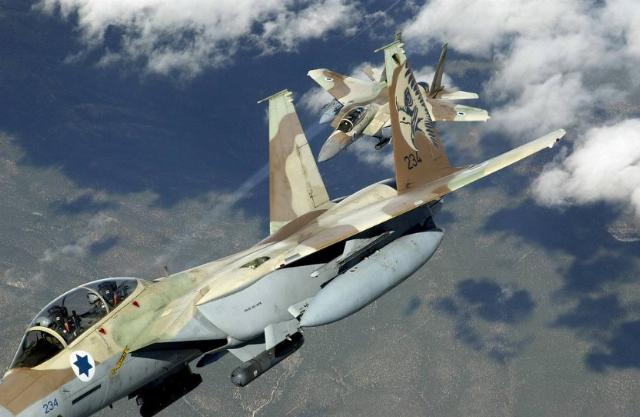Why Israel attacked Iran
Just days after Iran attempted to attack Israel with a massive number of ballistic missiles, Israel has decisively responded with an attack that has hit some of Iran’s military facilities. And that’s just the beginning of what’s in store.
The attack took place on Saturday morning, with several facilities hit and a number of soldiers killed. Of course, Iran was quick to downplay the attack, if only to make themselves look stronger than they actually are.
So what was the purpose of this particular attack? Some believe it’s a mere retaliatory attack, but there were two true objectives behind it.
The first was to weaken Iran’s air defenses. As you know, air superiority can be everything in a fight, especially with jet fighters scrambling to drop incoming attacks. Control of the air is critical.
So, yes, this particular attack has seriously damaged some of those defenses. Did it shut down Iran’s air defense assets entirely? No. But serious damage certainly sets the stage for future Israeli attacks.
Which brings us to the second objective. With its massive missile attack two weeks ago on Israel and its attempted assassination strike on Prime Minister Benjamin Netanyahu’s house, the Iranian regime was getting too confident for its own good. So Israel decisively struck against the Iranian military, thereby restoring at least some of its deterrence, by showing how easily Iran’s defenses can be pierced.
Of course, Iran says it wasn’t a big deal, in the hopes of defending its national pride, but they know the truth. These were concentrated strikes. They could have gone much wider in terms of hitting their oil and even nuclear facilities. So why wasn’t this done? Because apparently President Biden didn’t think it was a good idea.
Why? Politics. He’s concerned about how the U.S. elections would have been impacted if nuclear facilities were hit at this time. As flawed as this reasoning may be, Israel currently relies on support for the U.S., so more than likely a compromise was made to concentrate more on military sites.
But will this last? Not likely. The election isn’t far off now, with former President Donald Trump and Vice President Kamala Harris almost in a dead heat, based on observations. Once it ends, however, don’t be surprised if all bets are off.
Israel sees a nuclear Iran as an existential threat and the support for Hezb’allah and Hamas has caused this war. Therefore, the next step includes oil and, yes, nuclear facilities.
That sounds dire, but we are in dire times. Iran, Hezb’allah and Hamas have combined their efforts on the deaths of thousands. Their cause has also created unrest in other parts of the world, with many radicals showing support for Palestinian terrorists, rather than the people of Israel. So action must be taken in an effort to end the Iranian aggression once and for all.
Now, of course, Netanyahu will be pressured to agree to a ceasefire, but it’s highly unlikely that he will agree.
We may see how Iran responds to this latest attack, but Israel has taken a strong first step, and, if you ask the average Israeli, there is no turning back. Sooner rather than later, we’ll see the Israeli consensus in action, and its enemies will see it as well.
David Rubin, former Mayor of Shiloh Israel, is the author of seven books, including his latest, Confronting Radicals: What America Can Learn from Israel, which has recently been made into a movie. Rubin is the founder and president of Shiloh Israel Children’s Fund, established after he and his then three-year-old son were wounded in a terror attack.

Image: USAF
Ad Free / Commenting Login
FOLLOW US ON
Recent Articles
- The Slush Fund Nobody Voted For
- Hacktivism and the Possibility of WW III
- Illegals Working for Congress?
- Should FBI Agents Learn Martial Arts?
- Deep-State Sabotage in the DoD?
- What DOGE Is Accomplishing
- From Churchill to Vance...Sounding Off About Tyranny
- Globalist Games: They Play, We Pay
- Scorched-Earth Disease Control
- NATO, Ukraine, and the War Hawks’ Pixie Dust Playbook
Blog Posts
- The Obamas' podcast bombs
- Did Stacey Abrams’s NGO really get $2 billion for appliances to hand out to Americans?
- Mark Kelly exposes the hypocrisy behind the Democrats’ electric vehicle fixation
- Washington state attorney general is mad at sheriff's office for complying with federal law
- Can Trump and the team really win?
- The Democrat party is in dire need of shock therapy in the form of hard truths
- CNN wants you to know that Biden did not strand the astronauts Musk is rescuing
- Could Rahm Emanuel be the Democrats' great hope for 2028?
- The South African ambassador’s fate shows that America will no longer be bullied
- Nvidia: The Vera and Fritz chips
- A track attack
- Dem violence and manhood
- Ending the Fed
- Hey Chuck, you need a tune-up
- Kari Lake is kickin' it at USAGM and its Voice of America subsidiary






